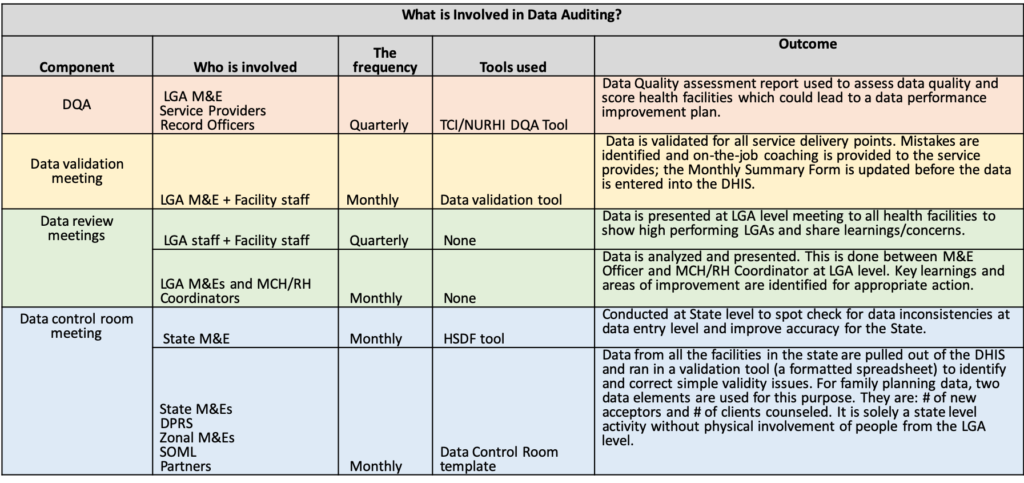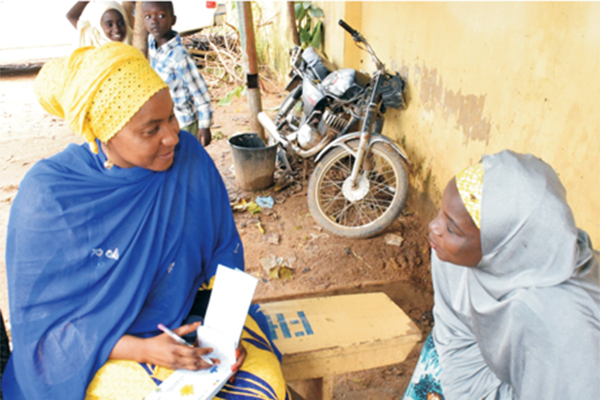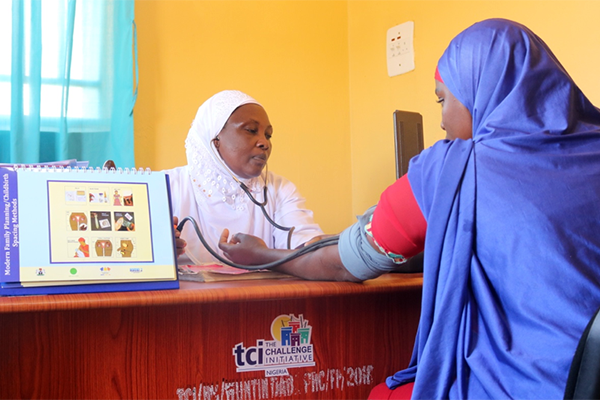Nigeria: Monitoring, Evaluation & Learning
- Home
- Help and Support
- Close
- Toolkits
- Global Toolkit
- AYSRH Toolkit
- Hub Toolkits
- Core High-Impact Practices
- Gender Essentials Mini Course
- Close
- Resource Collection
- Community of Practice
- Coaching
- Log In/Register
- My Profile
- English
 TCI proven approaches were identified through NURHI’s strong MLE evidence base. In addition, TCI Nigeria’s coaching support and the selection of prioritized approaches is informed by evidence collected as part of its Monitoring, Evaluation & Learning (MEL) Strategy, which includes but is not limited to:
TCI proven approaches were identified through NURHI’s strong MLE evidence base. In addition, TCI Nigeria’s coaching support and the selection of prioritized approaches is informed by evidence collected as part of its Monitoring, Evaluation & Learning (MEL) Strategy, which includes but is not limited to:
- TCI’s flexi-track surveys identify ideational factors that inform demand generation messages and approaches,
- Facility-level surveys along with the Performance Improvement Assessment help to determine which service delivery approaches will be most effective in a given context, and
- Participatory data collection exercises with key stakeholders, such as net-mapping and the policy environment score, help a State to identify its advocacy approaches.
Given the importance of data to inform programmatic decision-making in TCI, TCI Nigeria has embedded a Technical Support Lead for Research, Monitoring & Evaluation (RME) within the State structure to ensure the transfer of capacity in this important area as well as foster a culture of data use for decision-making at both the State and LGA levels, which is supported throughout all four stages of engagement with TCI. The TSL for RME works directly with the State and LGA RME Officers to strengthen their capacity in data collection, analysis and use to ensure that data of the highest quality is being collected at the facility-level and being inputted in a timely manner into the Nigerian Health Management Information System (HMIS) so that it can be used to inform decisions related to family planning service delivery and program management.
In an effort to strengthen the systems producing data and ensuring that its of high quality and accurate, TCI Nigeria has documented its guidance in the following data auditing approaches:
- Data Tools Needs Assessment
- Data Quality Assessment
- Family Planning Data Review
Data auditing in the Nigerian context largely comprises of the following components listed in the table below.

Based on the State’s need, data level, and whether or not an approach already exists in the State, TCI provides coaching support to implement the approach, modify it to bring it up to best practice standard or reactivate it in a sustainable manner so that the approach will remain in operation with or without TCI or other partner support.
Finally, TCI continues to support States to document its successes and learnings. As a result, the conference abstracts, posters and papers are also made available here.





